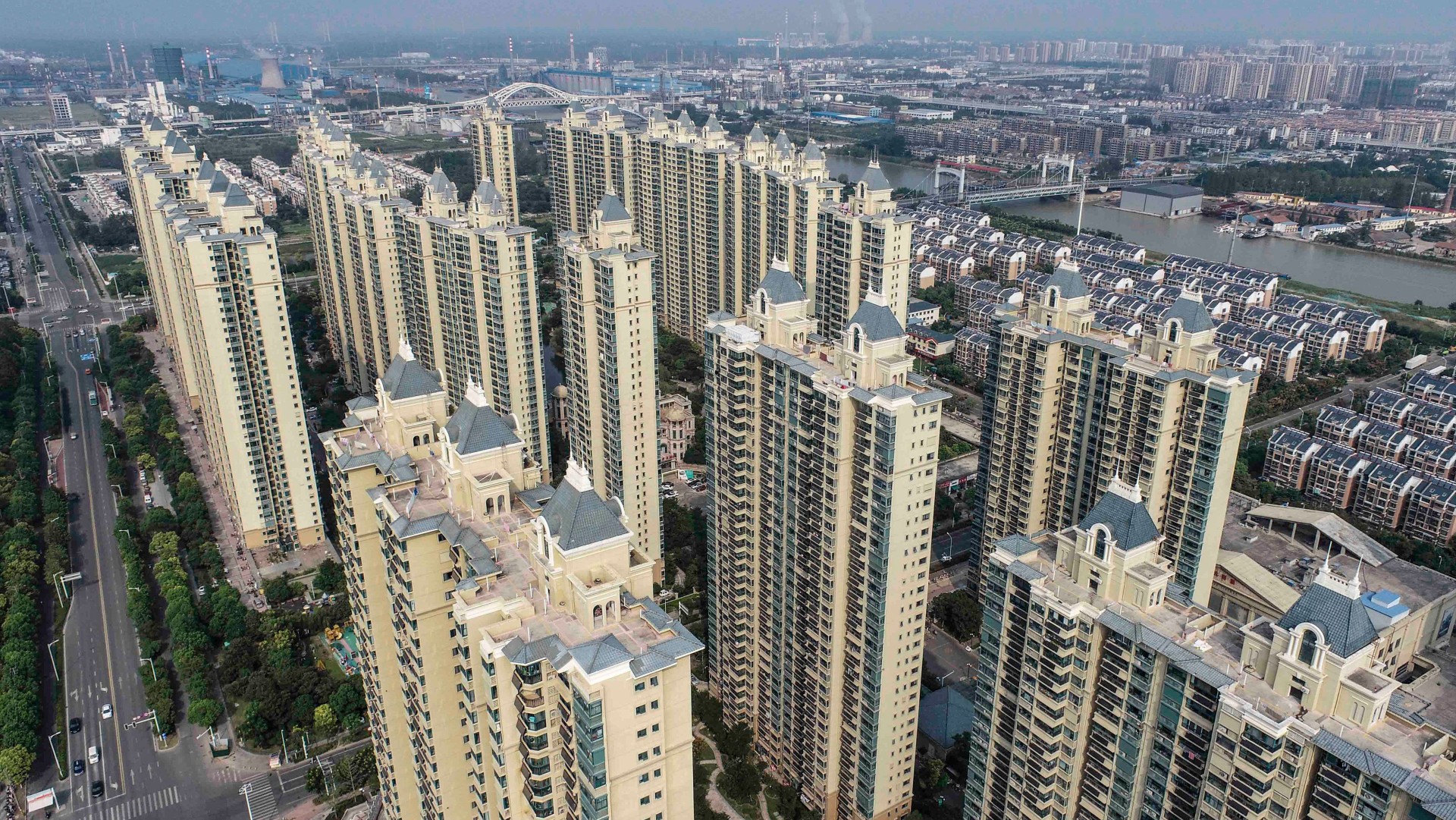Evergrande: why China’s property crisis matters for the world
Investors fear collapse of debt-laden firm could trigger global financial contagion

A free daily email with the biggest news stories of the day – and the best features from TheWeek.com
You are now subscribed
Your newsletter sign-up was successful
Global stocks have been hit by the heaviest sell-off in months amid fears that one of China’s biggest property developers will buckle under billions of dollars of debt.
The possible collapse of the beleaguered Evergrande Group is rattling financial markets worldwide, as some analysts warn that China may be about to face its “Lehman Brothers moment”.
Debt threat
The Week
Escape your echo chamber. Get the facts behind the news, plus analysis from multiple perspectives.

Sign up for The Week's Free Newsletters
From our morning news briefing to a weekly Good News Newsletter, get the best of The Week delivered directly to your inbox.
From our morning news briefing to a weekly Good News Newsletter, get the best of The Week delivered directly to your inbox.
Evergrande is “the world’s most indebted property developer” and has “debt due that it can’t pay”, explained Barron’s.
Founded in 1996, the group has around 1,300 projects across more than 280 Chinese cities, along with operations that cross over into other industries. But Evergrande has “borrowed extensively to fund its rapid growth”, said the financial magazine.
“It even owns one of country's biggest football teams - Guangzhou FC,” added the BBC.
Swiss bank UBS estimated that Evergrande's liabilities are now close to $313bn. And the crunch point may be fast approaching, with the construction giant due to shell out around $120m in interest payments to bondholders on Thursday.
A free daily email with the biggest news stories of the day – and the best features from TheWeek.com
China's response
Beijing is facing the “same kind of moral hazard” that confronted the US during the banking crisis of 2008, said Quartz.
Propping up Evergrande risks signalling an acceptance of risky behaviour to other companies, which is not a message that China wants to send. “Quite the opposite: China has been trying to cut down on the ballooning debt in its real estate sector, setting strict new rules on how developers find financing,” the site continued.
But “the cost of not keeping Evergrande afloat might be a high one too”.
Wider risks
“The fear is that Evergrande’s failure could lead to major losses by its lenders and bondholders,” said CBS News. “That could cause the financial dominoes to fall in China's vast real estate market.”
Alan Ruskin, macro strategist at Deutsche Bank, said that the mounting crisis had “the potential to be the largest corporate debt default ever, with spillovers to other financial institutions, Evergrande’s suppliers, homeowners, wealth product holders, other property companies, and onward and outward”.
As “shares in cash-strapped Evergrande hit decade lows”, reported Reuters, Ruskin added that “not surprisingly, analysts are scurrying around for touch points on where Evergrande might trigger contagion, within China and internationally”.
Global outlook
If the company’s lenders come under pressure, less money may be made available elsewhere for borrowing, potentially causing a credit crunch in the world’s second-largest economy. And with Evergrande’s share price having tumbled by almost 85% this year, investors have been weighing up whether the firm’s debt problems might start a broader sell-off.
Problems at the Hong Kong-listed group have already “spooked global markets”, noted the Financial Times, “with Wall Street recording its worst one-day loss in four months on Monday while Asian shares fell again on Tuesday, led by Japan”.
The sell-off on Monday “left few risky assets untouched”, said Bloomberg.
However, as equity markets rebounded today, some analysts sounded more optimistic. Citigroup’s Judy Zhang dismissed comparisons to the Lehman Brothers collapse - which sparked a global recession - arguing that Chinese policymakers “will likely uphold the bottom line of preventing systematic risk”.
That view is also held by Mark Williams, chief Asia economist at Capital Economics. He told CNBC that “policymakers will allow property developers to suffer considerable pain, but they’ll step in to make sure the banking system is OK”.
The key to what happens next is how Beijing responds, but the lack of communication from the Chinese leadership so far has become a problem in itself.
As Ding Shuang, chief economist for Greater China and North Asia at Standard Chartered Plc in Hong Kong, said: “Even though most people don’t expect Evergrande to collapse all of a sudden, the silence and a lack of major actions from policymakers is making everyone panic.”